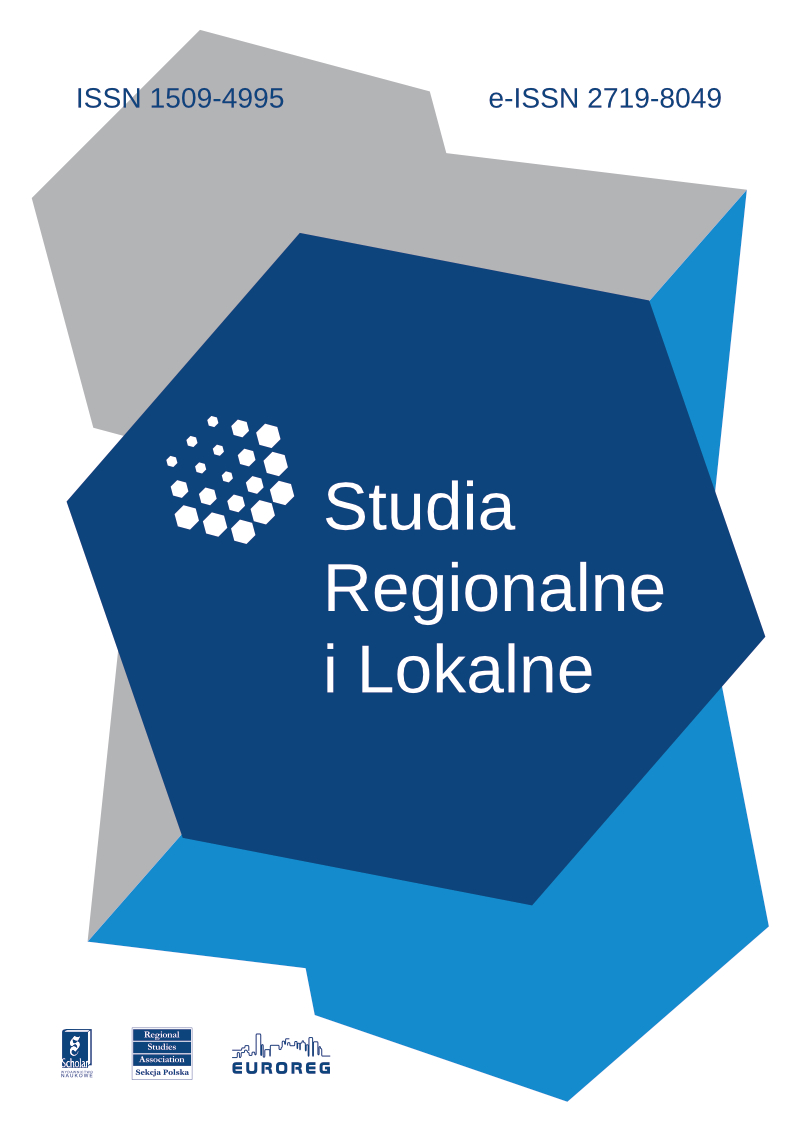Published in
2(16)/2004

- Jiří BlažekFactors and trends of regional development in the Czech Republic in transition and pre-accession period[more]
- Bolesław DomańskiCritique of the concept of development and regional studies[more]
- Mikołaj HerbstG. Blazyca (red.), 2003, Restructuring Regional and Local Economies. Towards a Comparative Study of Scotland and Upper Silesia, Hants-Burlington: Ashgate, 193 s. (recenzja)[more]
- Marek W. KozakNowe partnerstwo na rzecz spójności – trzeci raport Komisji Europejskiej o spójności ekonomicznej i społecznej (z praktyki)[more]
- Agnieszka OlechnickaKrystyna Gawlikowska-Hueckel, 2003, Procesy rozwoju regionalnego w Unii Europejskiej. Konwergencja czy polaryzacja, Gdańsk: Wydawnictwo Uniwersytetu Gdańskiego, 322 s. (recenzja)[more]
- Wojciech PanderA role of foreign capital in the restructuring of old industrial areas on the basis of the Steelwork Silesia in Rybnik[more]
- Iwona SaganContemporary regional studies – theory, methodology and practice[more]
- Janusz Zaleski, Paweł TomaszewskiMacroeconomical effects of the implementation of the national development plan 2004–2006[more]
- Andrzej ZiomekPrzeciwdziałanie bezrobociu na Górnym Śląsku – nowa forma prac interwencyjnych (z praktyki)[more]


